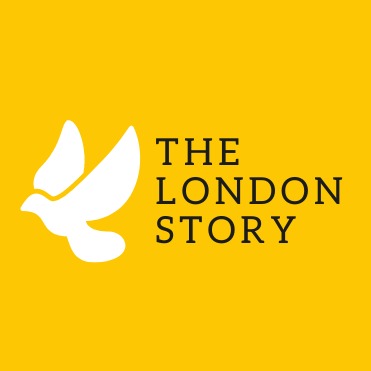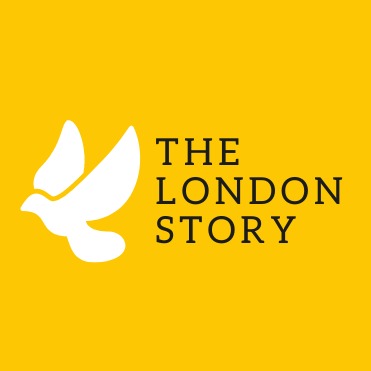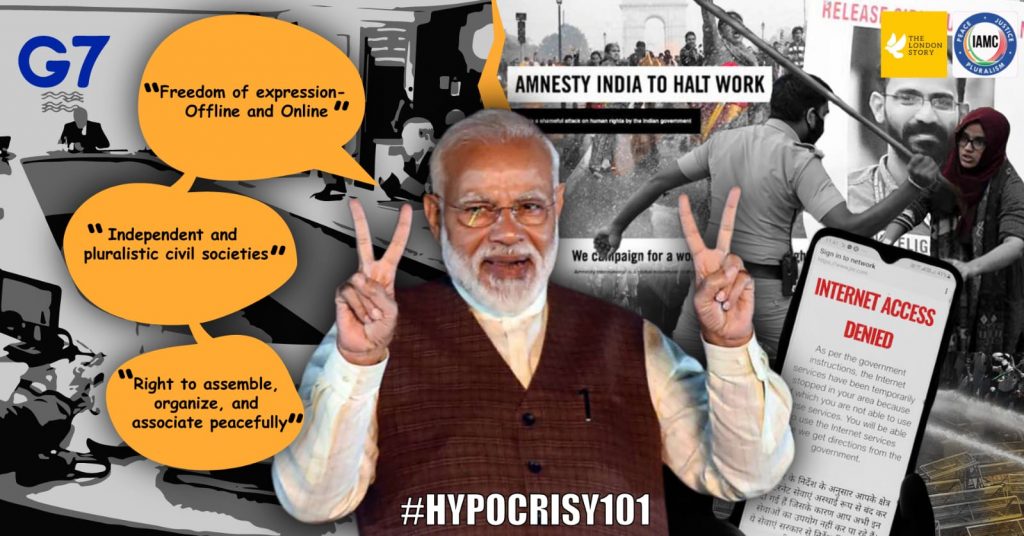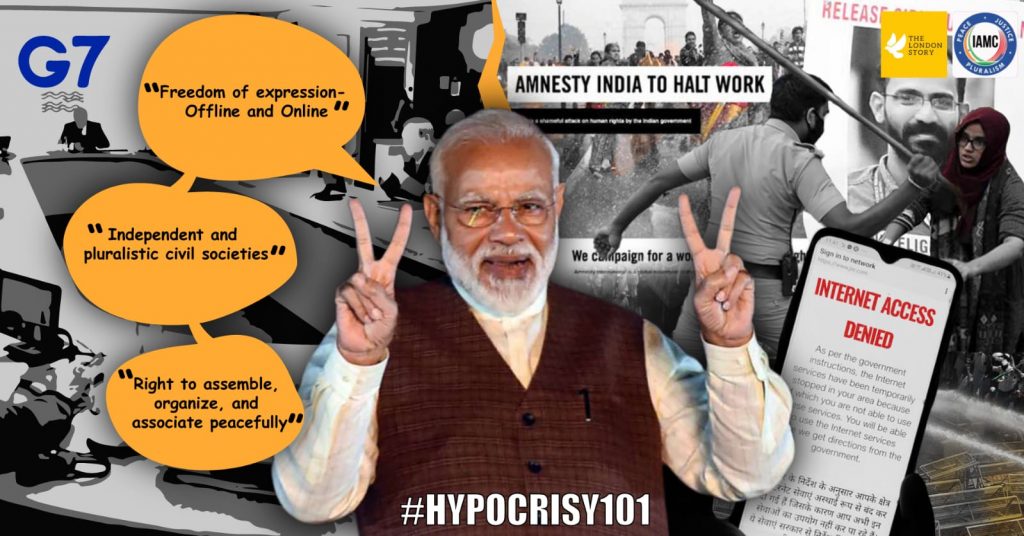
On 12 June 2021, the second day of the G-7 Summit, Indian Prime Minister Narendra Modi was invited by the G-7 as a ‘lead speaker' for the session titled ‘Building Back Together—Open Societies and Economies’. In the session, the G-7 along with 4 guest countries - Australia, India, South Korea and South Africa - signed the 2021 Open Societies Joint Statement. This show of solidarity amongst global leaders during Pandemic is enlivening for its commitment towards social and economic inclusion. However, we have one problem: the blatant hypocrisy of the G-7 in asking Narendra Modi to be the lead speaker despite the abhorrent track record of Mr. Modi’s government in reducing democratic, human rights, and rule of law standards in India, and the ‘openness’ with which Mr. Modi and his political allies - Bharatiya Janata Party (BJP), Rashtriya Swayamsevak Sangh (RSS), Sanatan Sanstha, Hindu Jan Jagruti, Bajrang Dal - are breaking communal harmony and inclusion in our Indian society. With this open letter we would like to thank the G-7 leaders for their ‘thought leadership’ and provide a reality check of every point the G7 and Mr. Modi have endorsed, with the hope that there will be some actual action on the agendas set forth.
The Joint statement affirms
-
“Human rights for all, both online and offline, as set out in the Universal Declaration of Human Rights and other human rights instruments, and opposition to any form of discrimination, so that everyone can participate fully and equally in society;”
Let us remind you that Freedom House’s Freedom in the World 2020 report ranked India as the ‘Countries in the Spotlight’ for the “deterioration of basic freedoms”. India moved down 10 points from 2017 and has been given the status of a ‘partly free’ country. The territory of Indian Kashmir being given the status of ‘not free’.
The methodology of the Freedom House Report is derived from the Universal Declaration of Human Rights; an instrument which India’s female diplomat Hansa Mehta helped draft in 1948 and which has since been the bare basis of human rights obligations, and also once again casually affirmed in the G-7 Summit by the ‘lead speaker’ Mr. Modi. Of the G-11 participating countries, only India has the status of a “partly free” country while every other country is “free”.

Source: Freedom House
In August 2019, after the revocation of Article 370 from Jammu and Kashmir, several Special Rapporteurs of the United Nations expressed grave concern over “intrinsically disproportionate” restrictions imposed by Mr. Modi’s government in the region. In August 2020, the Special Rapporteurs and Independent UN Experts again called for urgent action to remedy the “alarming” human rights situation in Jammu and Kashmir. Despite repeated condemnation from the UN, the BJP-led Government has failed to relax the restrictions in Jammu and Kashmir.
The UN Special Rapporteur on freedom of religion or belief in his February 2021 report highlighted incidents of islamophobia in India under the BJP-led government, putting it as one of the three countries of concern along with Sri Lanka and Mali (para 47 and 48).
Human Rights Watch (HRW) in its World Report 2021 noted that the BJP-led government increasingly harassed, arrested, and prosecuted rights defenders, activists, journalists, students, academics, and others critical of the government or its policies. HRW further noted that hundreds of people remained detained without charge in Jammu and Kashmir under the draconian Public Safety Act, which permits detention without trial for up to two years (pg. 317).
The Minority Rights Group International notes: “In recent years there has been rising hostility against India’s religious minorities, particularly since the current right-wing BJP-led government took power at the national level. These trends have strengthened following the May 2019 elections, with the BJP retaining power with an even larger majority.” The report further states that “a number of senior BJP leaders including Modi and former party president Amit Shah repeatedly resorted to polarizing messages and divisive rhetoric to garner votes.”
Human Rights Watch’s World Report 2021 also noted that “authorities failed to take action against BJP leaders who vilified Muslims and BJP supporters who engaged in violence” (pg. 317). Further, the United States Commission on International Religious Freedom in its Annual Report 2021 has labelled India as a ‘Country of Particular Concern’ for harassing religious minorities, particularly the Muslim community.
HRW hoped that the US Biden administration would be more outspoken about Mr. Modi’s encouragement of discrimination and violence against Muslims, even if India is seen as an important ally against China (pg. 13). Yet, President Biden shared the stage with PM Modi in the G-7 Summit and celebrated him as a ‘lead speaker’.
2. “G7 nations and ‘lead speaker’ Mr. Modi affirmed “Democracy, including each citizen’s right to vote in free and fair elections and everyone’s right to assemble, organise and associate peacefully, within a system of accountable and transparent governance;”
Free elections and right to assembly continue to stand on a shaky ground under the rule of the BJP. V-Dem’s Election Vote Buying Data in 2019 (the year in which Lok Sabha elections were held) gives a score of 1.41 out of 4 to India. The score indicates that elections are not entirely free and fair in India.
 Image Source: V-Dem
Image Source: V-Dem
In a report (Volume II) released by the Citizen’s Commission on Elections, chaired by former Supreme Court Justice Mr. Madan Lokur, “grave doubts” are expressed with respect to the 2019 General Election in India and the conduct of the Election Commission of India.
V-Dem’s Pandemic Backsliding Project data shows that between March to December 2020, out of 144 countries India ranked 3rd in the Pandemic Violations of Democratic Standards Index (PanDem) which captures the extent to which states’ responses to COVID-19 violate democratic standards for emergency responses and the Pandemic Backsliding Index (PanBack) which reflects the extent to which such responses pose a risk to the overall quality of democracy within the country.
 Image Source: V-Dem
Image Source: V-Dem
Here, V-Dem’s map shows that India under Mr. Modi’s leadership has seen major violations of democratic standards during the pandemic.
The Armed Conflict Location & Event Data Project (ACLED) shows the rise of political violence in India in the midst of COVID-19, thus showing how the State machinery is using the lockdown to suppress voices and to unjustly impose violence in the name of COVID-19 regulations. Here is a map and graphic showing the extent of political violence during COVID-19, after ACLED documented it for a week:

Image Source: ACLED
V-Dem’s data on Freedom of Peaceful Assembly in 2020 shows that on the scale of 0-4, India got a 1.83 score, wherein 1 stands for ‘State authorities rarely allow peaceful assemblies, but generally avoid using lethal force to prevent them’ and 2 stands for ‘State authorities sometimes allow peaceful assemblies, but often arbitrarily deny citizens the right to assemble peacefully’.
 Image Source: V-Dem
Image Source: V-Dem
With a score of 1.83, it can be seen that the BJP-led Government often arbitrarily denies citizens the right to assemble peacefully.
Seven Members of the US Congress wrote to the Secretary of State in December 2020 asking the United States to condemn BJP-led Government’s action against “protesting farmers from Punjab, who were marching peacefully to Delhi” and “were brutally subjected to water cannon attacks, barbed wire barricades, and tear gas by Indian security personnel.”
The Congressional Research Service Report R46713 on Farmer Protests in India dated 1 March 2021 also noted that “Indian officials have arrested numerous journalists and activists, requested broad internet shutdowns, and brought pressure on social media companies, including threats to arrest their employees in India. By some accounts, the crackdown on dissent has been excessive and reflective of a broader trend toward authoritarianism in India”.
3. “Social inclusion, solidarity and equal opportunities for all, including digital inclusion and full enjoyment of civil and political rights in both physical and digital spheres;”
India under Mr. Modi has become a dangerous place for minority groups. Religious minorities and social minorities like Dalits, tribals, and Muslim communities are increasingly being attacked in the country. Therefore, this affirmation of “social inclusion” seems far from reality. The National Crime Records Bureau (NCRB) report on Crimes in India 2019 shows that there was a 7.3% rise in crime against Scheduled Castes and 26.4% rise in crime against Scheduled Tribes in 2019. The state of Uttar Pradesh, a BJP-ruled state, tops the chart as can be seen in the map curated by Network 18creative.

Image Source: News18
The Armed Conflict Location & Event Data Project’s data on Cow Protection Related Violence Targeting Civilians shows that the RSS, a Hindu-nationalist organisation from which BJP takes its “genes”, was involved in more than 20 such reported cases.
 Image Source: ACLED
Image Source: ACLED
In this affirmation, G-7 leaders also talk about digital inclusion. However, one cannot help but notice the stark contrast to India under Mr. Modi where the lack of digital access has impacted students and educators heavily due to accessibility disparities in regional and household levels.
 Image Source: World Bank
Image Source: World Bank
In the above map, World Bank Education COVID-19 School Closures Map shows 320 million learners in India have been adversely affected by the COVID-19 pandemic and have transitioned to e-learning. According to the 2017-’18 National Sample Survey report on education, only 24% of Indian households have an internet facility. While 66% of India’s population lives in villages, only a little over 15% of rural households have access to internet services. For urban households, the proportion is 42%.
India’s COVID-19 response also highlights the digital and social divide of the country. The Association for Progressive Communications (APC) reported that “most rural residents who have not heard of the app and the online registration process flock into vaccination sites only to be turned away and told to register online, even if they do not know how”. Thus, the lack of access to internet in most parts of India is not only affecting education, but also India’s COVID-19 response.
As opposed to what has been affirmed about equal opportunities for all, the numbers at home show a different reality. Oxfam has found that the top 10% of the Indian population holds 77% of the total national wealth. 73% of the wealth generated in 2017 went to the richest 1%, while 67 million Indians, who comprise the poorest half of the population, saw only a 1% increase in their wealth. It also noted that many ordinary Indians are not able to access the healthcare they need. 63 million of them are pushed into poverty because of healthcare costs every year – almost two people every second.
4. “Gender equality and the political, social and economic empowerment of women and girls, including through girls’ education, responding to and working to eliminate gender-based violence, promotion of women’s and girls’ rights, and the protection of sexual and reproductive health and rights;”
The World Economic Forum’s Global Gender Gap Report 2021 ranks India under Mr. Modi at the 140th position among 156 countries. Needless to say, all other countries at the G-7 Summit have performed better than the country governed by Mr. Modi and his party.
 Image Source: World Economic Forum
Image Source: World Economic Forum
The National Crime Records Bureau (NCRB) report on Crimes in India 2019 showed a 7% rise in crimes against women. The report notes that a total of 4,05,861 cases of crime against women were registered during 2019, showing an increase of 7.3% over 2018 (3,78,236 cases). The Majority of cases under the ‘crimes against women’ section of the Indian Penal Code were registered under ‘cruelty by husband or his relatives’ (30.9%), followed by ‘assault on women with intent to outrage her modesty’ (21.8%), ‘kidnapping & abduction of women’ (17.9%) and ‘rape’ (7.9%). The crime rate registered per lakh women population is 62.4 in 2019 in comparison with 58.8 in 2018.
 Image Source: News18
Image Source: News18
With the BJP-ruled state of Uttar Pradesh topping the chart for crimes against women, crimes against girl children under the POCSO Act, and number of dowry cases, it also has the highest number of crimes reported against Dalit women.
In 2018, a report by the Thomson Reuters Foundation termed India as the most dangerous country for women. Instead of committing to better protection of women, especially sexual violence and trafficking, the Chairperson of the National Commission for Women dismissed the report as being unreliable. This conduct shows how authorities in India under Mr. Modi are increasingly choosing to dismiss concerns instead of addressing them.
Indian women continue to be subjected to brutal online harassment which the State has failed to counter. Foundation London Story’s report on abuse women face on Twitter showed that of 707 tweets directed at actress Swara Bhaskar in a week, a staggering 687 tweets were abusive slurs.

Image Source: Foundation The London Story
Female human rights defenders continue to be oppressed through the misuse of counter-terrorism laws such as the Unlawful Activities (Prevention) Act, 1967 (UAPA), as reported by Frontline Defenders.
In May 2020, the UN Special Rapporteur on the situation of human rights defenders, UN Special Rapporteur on the promotion and protection of the right to freedom of opinion and expression, UN Special Rapporteur on the rights to freedom of peaceful assembly and of association and other UN experts wrote to the Indian Government questioning the compatibility of the UAPA with international and human rights law.
These experts have written to the Government again about the arrest and detention of woman human rights defender Hidme Markam, expressing concern over her alleged arbitrary detention, which appeared to be in response to her legitimate human rights work, in particular highlighting instances of sexual violence against women by State security forces. Ms. Markam’s case is just one among thousand others over which the BLP-led Government has turned a blind eye to.
Not only women, but Transgender Persons have also been targeted by the State. In 2019, the Indian Parliament passed the Transgender Persons (Protection of Rights) Act, 2019 which mandates a legal gender recognition which requires a person to provide proof of surgery, issued by a hospital official which then needs to be verified by a government official. The Human Rights Watch reported that this “sets an extraordinary amount of power with one government office to arbitrate which trans people “qualify” to be recognized as who they are.”
5. “Freedom of expression, both online and offline, as a freedom that safeguards democracy and helps people live free from fear and oppression;”
When we first read this point in the Joint Statement signed by the G-7 leaders, we thought it was a joke. But no, PM Modi talked about ‘freedom of expression’ on an international platform with a straight face! Dear PM Modi and G-7 leaders, here are some facts to remind you all that today, India under the Modi government is one of the worst performers in terms of freedom of expression.
 Image Source: Reporters Without Borders
Image Source: Reporters Without Borders
In the Reporters Without Borders 2021 World Press Freedom Report, India ranked 142 among 180 countries with a score of 46.54. It was noted that “India is one of the world’s most dangerous countries for journalists trying to do their job properly”.
To avoid people from exercising their right to freedom of speech and expression, the BJP-led Government has a trick up its sleeve: the imposition of internet shutdowns.



Image Source: Access Now, #KeepItOn 2018, 2019 and 2020 Reports.
Access Now’s #KeepItOn reports of 2018, 2019 and 2020 show that India under Modi has made its mark in the world, quite literally as the country is consistently a top performer in the internet shutdown race. In fact, countries in the 2nd and 3rd positions are nowhere near the number of internet shutdowns imposed by the BJP-led government.
Data from Software Freedom Law Center, India (SFLC.IN) shows that most of these shutdowns were preventive in nature and the BJP-led Government feared dissent and prevented dissenters from speaking.
 Image Source: SFLC.IN
Image Source: SFLC.IN
SFLC.IN’s data also shows areas where internet was shut down (between 2012 to 2020) in the map below:
 Image Source: SFLC.IN
Image Source: SFLC.IN
Despite these trends of suppression of freedom of expression in India, PM Modi had the audacity to act as a harbinger of democracy and dissent while addressing the G-7 session on Open Societies as a lead speaker!
6. “The rule of law and effective, independent and impartial judicial systems free from corrupt influence or coercion, so that each person can access justice and benefit from a fair trial;”
Similar to other affirmations, in the rule of law area, India under Mr. Modi has not been faring well.
Tata Trust’s India Justice Report 2020 gives a visual comparison of how India performed in the World Justice Project Rule of Law Index 2020. It can be seen that India belongs in the second half in the Rule of Law Index with a moderate performance. Special attention needs to be given to the ‘Order and Security’ and the ‘Civil Justice’ category in which India’s performance is worst. WJP defines ‘Order and Security’ as how well a society ensures the security of persons and property and as a pre-condition for the realization of the rights and freedoms that the rule of law seeks to advance. It can be seen that Indian citizens do not have favourable conditions for the realisation of their rights and freedoms.
 Image Source: India Justice Report 2020
Image Source: India Justice Report 2020
WJP defines Civil Justice as a measure of whether civil justice systems are accessible and affordable as well as free of discrimination, corruption, and improper influence by public officials. It examines whether court proceedings are conducted without unreasonable delays and whether decisions are enforced effectively. It also measures the accessibility, impartiality, and effectiveness of alternative dispute resolution mechanisms. Again, in this category India has been performing badly since there is a massive backlog currently of nearly 3.3 million cases (in the Supreme Court, almost 58,000 cases are pending) and to extremely long periods of detention when awaiting trial, as reported in the BTI Transformation Index.
The US Department of State in its 2020 Country Reports on Human Rights Practices: India highlighted that India faces significant human rights issues including unlawful and arbitrary killings, including extrajudicial killings perpetrated by police, torture and cases of cruel, inhuman, or degrading treatment or punishment by police and prison officials; arbitrary arrest and detention by government authorities, among others.
The Committee to Protect Journalists reported that police in the state of Uttar Pradesh arrested Siddique Kappan, a journalist with reported health problems on October 5, 2020, and held him incommunicado for 48 hours before formally opening an investigation. When the CPJ team tried to reach the Additional Chief Secretary and Director-General of police in Uttar Pradesh, they did not respond. Only recently, a Mathura Court asked the State to drop a breach of peace charge against him. CPJ has called on the Indian authorities to immediately release Kappan and drop all charges against him.
The number of pre-trial detainees in Mr. Modi’s India is on the rise. A data analysis by Commonwealth Human Rights Initiative on the basis of Penal Reform International’s Global Prison Trends 2018 Report shows that India stands at 16th position with 69.4% of its total prison population being pre-trial detainees. While the world’s pre-trial prison population increased by 15% from 2000 to 2016, India’s pre-trial prison population increased by more than 25% in just last 10 years. According to the analysis, the duration of imprisonment pending trial too is increasing. The share of pre-trial detainees who have spent more than a year in prison increased from 19% in 2000 to 25% in 2018.
-
“An effective multilateral system underpinned by principles of openness, transparency and accountability, including access to free and fair, rules-based trade, as well as collaboration on global challenges, including COVID-19 immunisation, for the good of all;”
India under Mr. Modi has been ranked 86th in the Corruption Perception Index by Transparency International. In the Global Corruption Barometer, in which Transparency International surveys experiences of everyday people confronting corruption around the world, they found that 89% of people who think government corruption is a big problem, while 39% of public service users reported having paid a bribe in the previous 12 months.
In the Global Corruption Barometer Asia 2020 Report, Transparency International stated that “when asked why they pay bribes or use personal connections, 50 per cent of those who paid bribes said they were asked to, while 32 per cent of those who used personal connections said they would not receive the service otherwise”

Image Source: Transparency International
Since 2019 Mr. Modi started an aggressively advertised, highly opaque PM CARES fund for COVID-19 relief. 100 civil servants of the All India and Central Services wrote an open-letter to PM Modi raising questions with respect to the lack of transparency of the PM Cares Fund, and stated that “There is a clear absence of transparency in every aspect of PM-CARES. Neither details of donors and amounts received nor details of expenditures incurred are in the public domain. This opacity is disturbing as the State governments handling the COVID-19 challenge were, and continue to be, sorely in need of financial assistance”.
Questions regarding the PM CARES fund were also raised in the Lok Sabha by Parliamentarian Dr. Shashi Tharoor wherein he said:
“2. The Bill (Taxation and Other Laws (Relaxation and Amendment of Certain Provisions) Bill, 2020) brings the PM-CARES Fund within the ambit of the same Clause that now governs the PM’s National Relief Fund. If the Government seeks to draw equivalence between the two, then why has the need to institute a new fund arisen? This raises serious questions regarding the intention behind creating a duplicate fund, which has also been exempted from C&AG’s audit and for which no reasons have been provided under this Bill.
3. While the Bill seeks to provide the same tax exemptions to the PM-CARES Fund and the PM’s National Relief Fund, it draws an arbitrary distinction between the two, as donations of the PM-CARES Fund count towards a company’s mandatory CSR contributions, but do not count in case of PM’s National Relief Fund. This creates a double benefit of tax exemption for companies’ donation to the PM-CARES Fund.”
-
“The importance of civic space and partnership with diverse, independent and pluralistic civil societies, including human rights defenders, in promoting human rights and fundamental freedoms.”
In September 2020, Amnesty International India halted its operations after its bank accounts were frozen by the Enforcement Directorate, an investigative agency of the Government in India. The official statement of Amnesty International is available here.
The shutdown of Amnesty International has been condemned by the UN High Commissioner for Human Rights Michelle Bachelet expressed concerns over Amnesty shutdown and the use of the Foreign Contribution Regulation Act (FCRA), October 2020. She said “I am concerned that such actions based on the grounds of vaguely defined ‘public interest’ leave this law open to abuse, and that it is indeed actually being used to deter or punish NGOs for human rights reporting and advocacy that the authorities perceive as critical in nature. Constructive criticism is the lifeblood of democracy. Even if the authorities find it uncomfortable, it should never be criminalized or outlawed in this way.” According to the records of the Ministry of Home Affairs, from 2011 to 2021 registrations of more than 26,000 were cancelled under the FCRA.
The UK Parliament passed an Early Day Motion 1278 tabled on 15 December 2020 titled ‘Criminalisation of dissent in India’ and noted that “the recent shutdown of the Indian branch of Amnesty International, the world’s leading human rights advocacy group, bears witness to the currently perilous state of Indian democracy; stands in solidarity with those incarcerated for raising their voices against the oppressive anti-minority politics of the current regime; and calls upon the UN, its member states and international governments to hold the Indian Government to account, and to subject its violations of basic democratic principles to international scrutiny.”
In the Draft European Parliament Recommendation to the Council, Commission and the Vice-President of the Commission / High Representative of the Union for Foreign Affairs and Security Policy concerning EU India relations (2021/2023(INI)), MEP Alviina Alametsä noted “whereas Amnesty International was compelled to close its offices in India after its bank accounts were frozen over an alleged violation of the FCRA, and three UN special rapporteurs have called for the law to be amended in line with India’s rights obligations under international law”.
In a Statement of the Chair of the European Parliament’s Subcommittee on Human Rights, Maria Arena expressed concern: “Most recently and very worryingly, Amnesty International India has been forced to announce that it is halting its work in India due to government reprisals… As a sitting member of the Human Rights Council, India has pledged to “continue to foster the genuine participation and effective involvement of civil society in the promotion and protection of human rights.” Therefore, I call on the Indian government to meet this pledge, in a manner worthy of the global role model it aspires to be. It is high time for India to translate words into action.”
The halting of Amnesty International’s operations in India has left local organisations in a state of fear. Despite condemnation from different governments, actors and institutions, Amnesty’s operation in India has not been resumed.
Another threat to the human rights space in India is that of surveillance. A report by Citizen Lab and Amnesty International found that in 2019 multiple human rights defenders were targeted by a Coordinated Spyware Operation. The report observed that the attacks targeted nine “human rights defenders, most of whom have been fighting for the release of the Bhima Koregaon 11 through litigation, research, or activism, were unlawfully targeted with a spyware attack”.
The Bhima Koregaon accused continue to languish in jail despite made-up charges, age-related vulnerabilities and COVID-19 complexities, simply for exercising their right to express their opinion which happens to be against the Modi government’s Hindutva project.
___________________________
The Indian Government under PM Modi does not respect India’s own founding values of unity in diversity or the inclusive way of life. Whereas, fundamental freedoms empower people and inspire the innovation and ingenuity needed to maximise opportunities, tackle shared challenges and drive progress for the world, in PM Modi’s India fundamental freedoms are at risk. Whereas, openness encourages collaboration that delivers better outcomes towards better quality of life for our people, with a commitment towards ‘no one left behind’. PM Modi’s India has shut itself down for Kashmiris, minorities, Muslims, women and children. India under PM Modi is at a critical juncture, facing threats to freedom and democracy from rising authoritarianism, electoral interference, corruption, economic coercion, manipulation of information, including disinformation, online harms and cyber-attacks, politically motivated internet shutdowns, human rights violations and abuses, terrorism and violent extremism. As people of Indian origin proud of our diversity, cultural history, and epistemology, we call upon global leaders to walk the talk and strengthen open societies by protecting civic space and media freedom, promoting freedom of expression, freedom of assembly and association, and freedom of religion or belief, and by tackling all forms of discrimination, including racism and casteism. India under Mr. Modi is facing threats to its social fabric from persistent inequalities and discrimination, including Islamophobia, casteism, racism and resistance to gender equality. In the midst of these threats Indians are gasping for oxygen. And while India has always boasted its proud democratic legacy from the Viharas of Taxila to becoming the largest democracy in the modern world, we cannot be complacent. The threat of PM Modi’s party - the BJP - and its Hindutva Project must be addressed. We mirror the sentiment expressed by one of our female leaders (Mahua Moitra) in the Indian Parliament – the emperor is naked and the global leaders who are truly committed to Human Rights and Right to life with dignity for all, should not invite a ‘naked emperor’ to be a ‘lead speaker’ in an event which is supposed to impact the global future.
